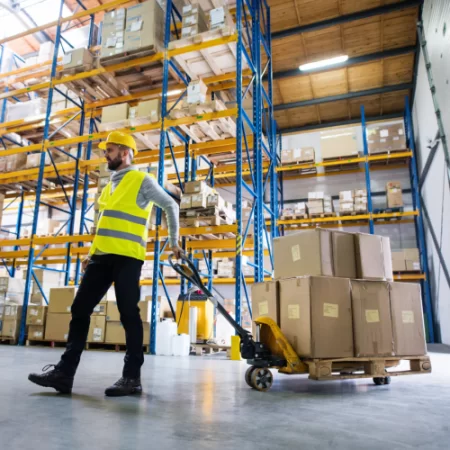Warehouse Safety Tips

Warehouse safety is one of the biggest problems faced by warehouse managers and their employees. Industry workers end up sustaining many injuries and even fatalities, with people dying in their workplace every year. These causalities can be reduced significantly if we consider warehouse safety. Today we’ll be discussing the most common warehouse injuries workers can face, and what you can do to avoid them.
Heavy Equipment
Machinery such as forklifts and pallets are the leading cause of injuries in the warehouse. Workers could potentially be hit or run over by forklifts, falling between the trailer and the lift, or falling from an elevated platform. Ensure that all operators in your warehouse have received certified training and re-evaluate them when necessary. It’s also a good idea to inspect your forklift equipment on a daily basis for damages.
Slips, Trips, and Falls
A high percentage of warehouse accidents involve slips, trips, and falls. This is usually due to uneven floors and the accumulation of debris, grease, or cords lying in walking areas. It’s important that your staff understands how to clean up after themselves. There should be regular checks on the flooring of your warehouse for any potential hazards. Neglecting this problem could lead to severe employee injury and damage to valuable cargo.
Chemicals
Some warehouses store hazardous chemicals for production purposes. If handled improperly, these chemicals can leak and spill, threatening the safety of your workers. Training on how to deal with these chemicals should include storage, disposal, and the use of personal protective equipment. Routine safety inspections on the proper handling of these chemicals are imperative to ensuring warehouse safety.
Fire Safety
If you own a warehouse facility, you most likely have all the necessary fire alarms, extinguishers, and sprinklers as required by safety regulations in your area. While this is important, you need to ensure your workers are trained in their proper use. Fire and smoke alarms should also be tested on a regular basis, and the installation of emergency lights is important as well.